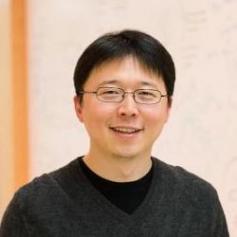
Exploration of Microbial Diversity to Discover Novel Molecular Technologies
Description
Many powerful molecular biology tools have their origin in nature, and, often, microbial life. From restriction enzymes to CRISPR-Cas9, microbes utilize a diverse array of systems to get ahead evolutionarily. We are interested in exploring this natural diversity through bioinformatics, biochemical, and molecular work to better understand the fundamental ways in which living organisms sense and respond to their environment and ultimately to harness these systems to improve human health. Building on our demonstration that Cas9 can be repurposed for precision genome editing in mammalian cells, we began looking for novel CRISPR-Cas systems that may have other useful properties. This led to the discovery of several new CRISPR systems, including the CRISPR-Cas13 family that target RNA, rather than DNA. We developed a toolbox for RNA modulation based on Cas13, including methods for precision base editing. We are expanding our biodiscovery efforts to search for new microbial proteins that may be adapted for applications beyond genome and transcriptome modulation, capitalizing on the growing volume of microbial genomic sequences and building on our bioengineering expertise. We are particularly interested in identifying new therapeutic modalities and vehicles for delivering cellular and molecular cargo. We hope that this combination of tools and delivery modes will accelerate basic research into human disease and open up new therapeutic possibilities.
Speaker Bio
Feng Zhang joined MIT in 2011. He is a core member of the Broad Institute, the W. M. Keck Career Development Professor in Biomedical Engineering, an assistant professor in the MIT department of Brain and Cognitive Sciences, and an Investigator in the McGovern Institute. He obtained a bachelor’s degree from Harvard University and a PhD in chemistry and bioengineering from Stanford University. Before joining the MIT faculty he was a junior fellow of the Harvard University Society of Fellows. He is a Searle Scholar, and has received both a Director’s Transformative Research Award and a Directors’ Pioneer Award from the National Institutes of Health. In 2012 he shared the UNC/Perl Prize for his role in the development of optogenetics.

